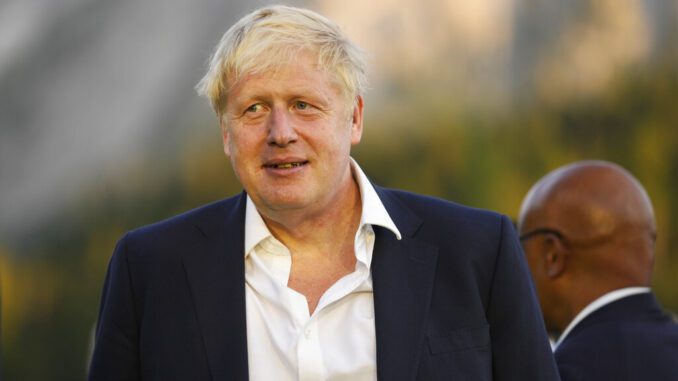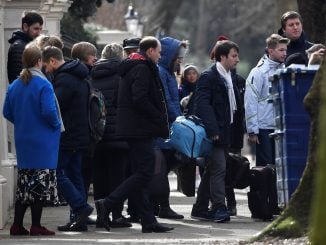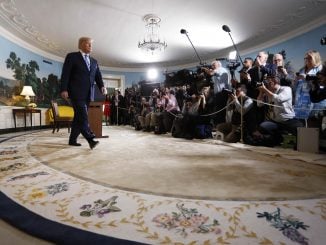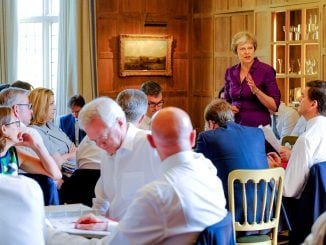
LONDON — British Prime Minister Boris Johnson’s bid to rip up parts of the post-Brexit trade deal he signed with the European Union has cleared its first hurdle in Parliament, despite warnings from opponents that the move is illegal.
Lawmakers voted 295 to 221 late Monday to give initial approval to a bill allowing U.K. officials to rewrite trade rules for Northern Ireland. The vote clears the way for the bill to undergo detailed scrutiny in coming weeks.
If approved, the legislation would remove checks on goods entering Northern Ireland from the rest of the U.K., thereby scrapping parts of a trade treaty that Johnson signed before Britain left the EU in 2020.
The British government says the rules, known as the Northern Ireland Protocol, are burdening businesses and undermining peace in Northern Ireland. It argues the unilateral move is justified under international law because of the “genuinely exceptional situation.”
Johnson’s opponents — including his predecessor, Theresa May — say the move is illegal and that going ahead will seriously damage Britain’s international reputation as “a country that keeps its word.”
“As a patriot, I would not want to do anything that would diminish this country in the eyes of the world,” May told Parliament.
“I have to say to the government, this bill is not, in my view, legal in international law,” she added. “It will not achieve its aims, and it will diminish the standing of the United Kingdom in the eyes of the world, and I cannot support it.”
The EU has threatened to retaliate against the U.K. if it goes ahead with its plan to rewrite the rules of the post-Brexit deal, raising the prospect of a trade war between the two major economic partners.
Johnson said Monday he believed the plan could become law by the end of the year if Parliament cooperates. The government wants to fast-track the bill through Parliament before lawmakers take their summer break.
Northern Ireland is the only part of the U.K. that shares a border with an EU country, Ireland. When Britain left the European Union and its borderless free-trade zone, the two sides agreed to keep the Irish land border free of customs posts and other checks because an open border is a key pillar of the peace process that ended decades of violence in Northern Ireland.
Instead, to protect the EU’s single market, there are checks on some goods, such as meat and eggs, entering Northern Ireland from the rest of the U.K.
Johnson’s Conservative government claims overzealous EU implementation means the rules are not working as expected and are causing a political crisis in Northern Ireland.
Northern Ireland’s main unionist party has refused to return to the region’s power-sharing government until the Brexit customs checks are scrapped or substantially changed. Its leaders argue that the checks on goods are threatening the bonds between Northern Ireland and the rest of the U.K. because they effectively created an internal U.K. trade border.
The party’s stance has left Northern Ireland without a functioning government for months.



